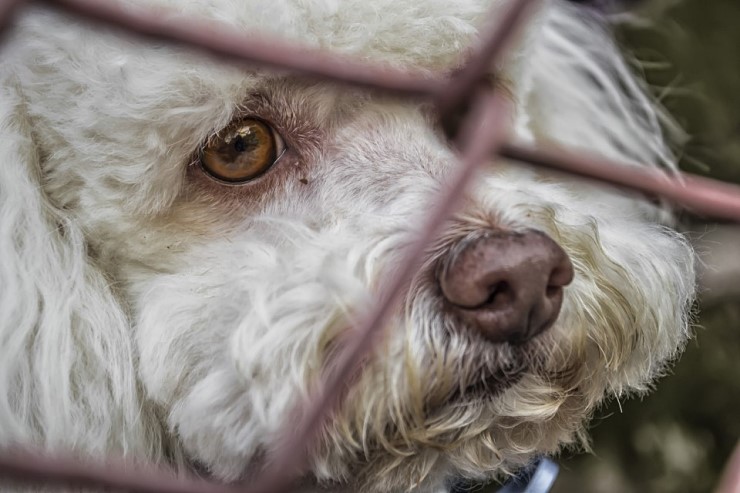The pet-care business is growing as more and more people add dogs to their households. Dog hotels are great options for pet owners who want their dogs to have company and care while they’re away from home. This means pet owners depend on these hotels to take good care of their dogs and keep them safe. However, recently, a number of unfortunate accidents have led customers to lose faith in the services. As a result of the widespread attention to brought to these cases, the public has learned that there are no rules and regulations regarding the ownership and operation of pet-boarding businesses.
 |
| ▲ Photo from 'Pixabay' |
In August 2017, a Bichon Frise died at a pet dog hotel in Seoul after being bitten by Siberian Husky. Before the incident, this dog hotel promoted its safe facilities and reliable guardianship. But according to their CCTV files, dogs were housed in the same space, regardless of their size, and there were no safety measures, such as partitions, protecting smaller dogs from the larger animals. In addition, the incident occurred while the pet hotel owner was away, meaning the dogs were left completely unsupervised. To add insult to injury, while the dog lay dying, the business owner hesitated before contacting the pet owner to advise them of the tragedy. Following the incident, the pet hotel called it an unfortunate accident and negotiated a settlement with the injured party.
In May 2018, a dog hotel in Cheongju suffering from financial difficulty was investigated by the Korean Alliance for the Prevention of Cruelty to Animals (KAPCA). The business owner couldn't afford to feed it’s estimated 20 dogs, so three of them were abandoned and the other 17 were left without supervision. Of the 3 abandoned dogs, 2 of them were puppies and the other was only three-years-old. They were all found dead by investigators.
While these two incidents do not represent the entire pet hotel business, there remains a need to ensure they are not repeated. Pet hotels should have a legislated emergency system in place in case of any injuries, illnesses or accidents. At the moment, pet hotel owners are not required any special qualifications or certificates related to the care of animals in order to open this kind of business. An association of lawyers for animals known as People for Non-Human Rights (PNR) stated in an interview with the Dankook Herald (DKH) “If someone wants to open a pet hotel, they are not required to pass any individual qualifications. They just have to submit papers about the type of business they are operating to the community office.” Most pet hotel owners agree with the idea of systematic regulations as a precursor to launching a new pet care business. Pet hotel ‘Mung Story’ stated in an interview with the DKH. “Most pet hotels employ part-time workers who don’t have practical experience. Moreover, part-time workers are responsible for cleaning and the control of too many pets. This problem is all too common in the pet hotel industry. Thus, workers should be specialized.”
These problems are a result of weak or non-existent regulations in the industry. Korea’s Animal Protection Act, which was established in 1991, covers the protection of animals from abuse, however, the laws are not strong enough because they do not adequately deal with repeat offenders. At the moment, offending business owners can re-open another facility after 3 years while overseas regulations, like those governing the European Union (EU), are much stronger than ours. The biggest difference is that the foreign laws recognize and treat the animal as a living being. As the importance of animal rights grows, more and more international laws are being altered to consider animals as living beings. The EU included this definition in 2009 through the adoption of the Lisbon Treaty, while Germany has had similar rules in place since 2002. Korean law defines animal owners as people who temporarily or permanently ‘manage’ the animal, while these international laws define owners as people who are ‘responsible’ for the well being of the pet.
In the meantime, if you want to ensure that a select dog hotel is safe for pet boarding, see if they have 24/7 access to a veterinary hospital or if they have pet care professionals operating directly in the hotel. However, as the PNR stated in our interview, “At present, the pet hotel business is only under abstract and rough regulation, a system that is clearly not enough to ensure animal’s welfare. Regulations should focus on the fact that the pet is a part of all living things.” Only then can we be certain that all that can be done, is being done, to care for your beloved pet.
심형석, 김동은, 박근후 dankookherald@gmail.com

![[Campus Magnifier] Let's Surf the Library!](/news/photo/202404/12496_1765_4143.jpg) [Campus Magnifier] Let's Surf the Library!
[Campus Magnifier] Let's Surf the Library!
![[Campus Magnifier] Let's Surf the Library!](/news/thumbnail/202404/12496_1765_4143_v150.jpg)





